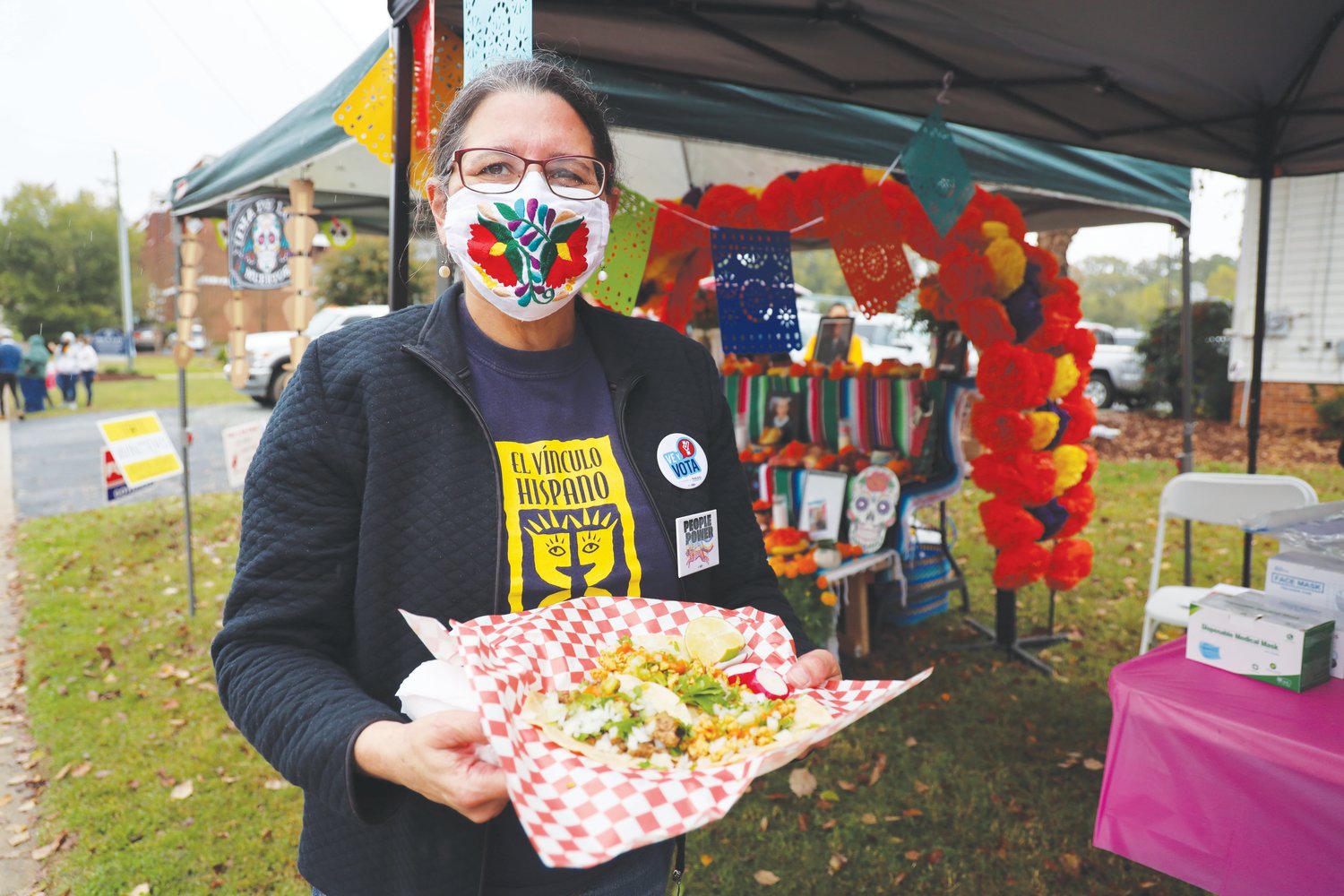![]()
By Preston Lennon, Chatham News + Record Correspondent
Restaurants in Chatham County and throughout North Carolina have reopened their doors to a different sort of dining experience.
Until at least July 17, restaurants in North Carolina will be limited to 50 percent capacity, require face coverings for workers and enforce social distancing measures.
Restaurant owners in Chatham County are thinking that the fallout from the pandemic is going to linger for months to come.
“There’s no telling when businesses are going to reopen fully, or when people are going to feel comfortable going out,” said Greg Lewis, the owner of Pittsboro Roadhouse. “So the government is going to have to do more in my estimation. The government is going to have to come up with more ways to help small businesses survive the next six months.”
Lewis closed his restaurant on July 12, and is now in the process of opening a new establishment at Chatham Mills in the former location of Pickle Jar and Oakleaf. Like his former restaurant, it will also be a steakhouse, but with a smaller menu. He hasn’t announced the name yet. Before the pandemic, 60% of Lewis’ business came through his catering company, but that has now evaporated, he said.
While restaurants are struggling to fill the seats as people opt to stay at home rather than go out, a significant portion of their cost of business remains steady, putting pressure on restaurants that have already had to scale back operations.
“Your overhead costs are pretty much the same as you work through this pandemic,” Lewis said. “Your rent doesn’t go down. Utilities, the only reason they go down is because you’re using a little bit less. Insurance, things like that, they don’t change.”
In April, Lewis procured a loan through the Small Business Association’s Payroll Protection Program, granting him money that would be forgiven if he kept his employees on payroll for eight weeks.
Lewis did just that. As the eight weeks came to a close, however, he said the terms of the loan changed, giving businesses a longer period of time to spend the money.
Lewis said he was instructed to put 75% of the loan toward payroll, with the remaining 25% allowed to be used on overhead costs. Under the updated rules, he said, the ratio changed to 60 percent for payroll and 40 for overhead.
“We basically paid employees to stay home,” he said. “That way they were not going to the unemployment offices and clogging up those offices.”
But Lewis said the rule change put him at a disadvantage, because other businesses that held onto the money rather than using it to pay unneeded employees now had a 24-week period to make use of the loan, and could use it to reopen their businesses.
“There were those businesses that chose to hold on to that money instead of spend it,” he said. “Those folks now have an advantage over those of us who spent the money correctly.”
At other restaurants in Chatham County, concerns over how the pandemic will affect dining are at the forefront of restaurateurs’ minds.
Bill Hartley, the co-owner of Postal Fish Company in Pittsboro, said the days of customers coming into the restaurant and spending two hours eating dinner are over for the time being.
“People come in, do their thing, and they get up and leave,” Hartley said.
At the restaurants in the Fearrington Village, a Pittsboro real estate community that includes a luxury inn with multiple dining options, the bar is closed. To help mitigate potential virus spread, each table in the Fearrington House restaurant is only used once per night.
Kerstin Lindgren, the marketing and public relations manager for Fearrington Village, said employees’ hours have been reduced across the board.
“We need for folks to continue to be good about wearing masks so we can dig out of this faster,” she said. “It affects things from a PR standpoint, because people hear that the rates are up in North Carolina and they don’t want to travel here. So it’s really all about getting people to wear those masks.”
Although many restaurants have been able to survive on take-out orders and reduced capacity dining, others haven’t been able to withstand the toll the pandemic has forced upon the industry.
Courtney Machowicz, who owned the Whiskey Barrel Cafe in Siler City, said her situation became unsustainable after a period of low sales followed Governor Roy Cooper’s March 17 order, which required restaurants to switch to a take-out- and delivery-only model. She said she decided to sell her struggling business, and join her husband who was living in California.
“Prior to this situation I was reaching out to see if the town/county offered seed money, which I found out that they do not. All of the surrounding counties offer it for businesses,” she said in an email. “This is very disheartening that during the times in need, it seemed that we (small businesses) are stuck on the lowest part of the totem pole and bound by the most strict of policies.”
The Chatham County Health Department is hosting a twice-a-week Zoom call for restaurant owners, in which they provide guidance on safe practices and field questions from the community.
Lewis, the Pittsboro Roadhouse owner, said he thinks the Health Department is doing great work, but he hasn’t heard much from other government offices.
Lisa Morgan, the supervisor for the county’s Food and Lodging program, said that her department has helped some restaurants revise their permits to allow them to serve family style meals.
“We are telling them they’re an essential business,” Morgan said. “Their role in the community is vital. They provide food, so we’re really trying to encourage them to keep at it.”
Chapelboro.com has partnered with the Chatham News + Record in order to bring more Chatham-focused stories to our audience.
The Chatham News + Record is Chatham County’s source for local news and journalism. The Chatham News, established in 1924, and the Chatham Record, founded in 1878, have come together to better serve the Chatham community as the Chatham News + Record. Covering news, business, sports and more, the News + Record is working to strengthen community ties through compelling coverage of life in Chatham County.











